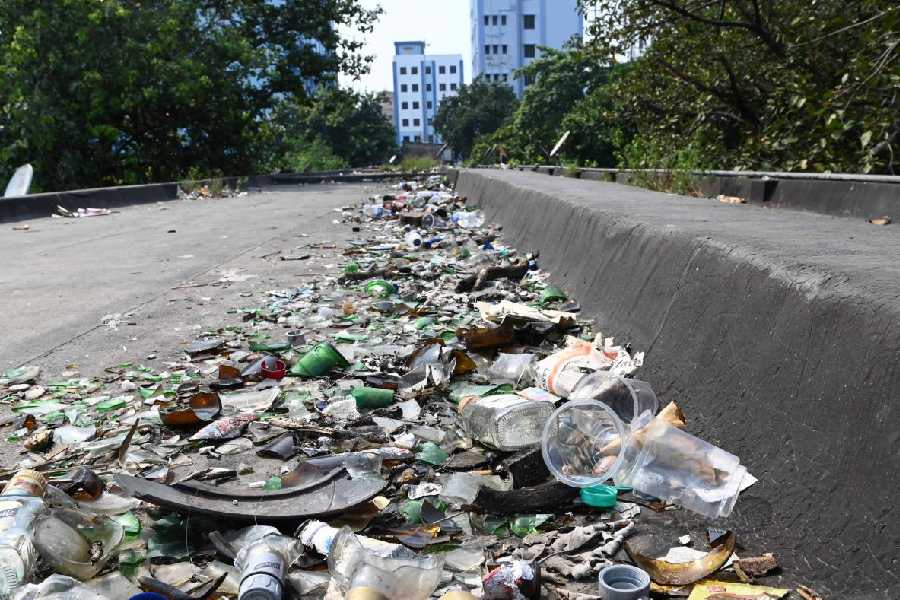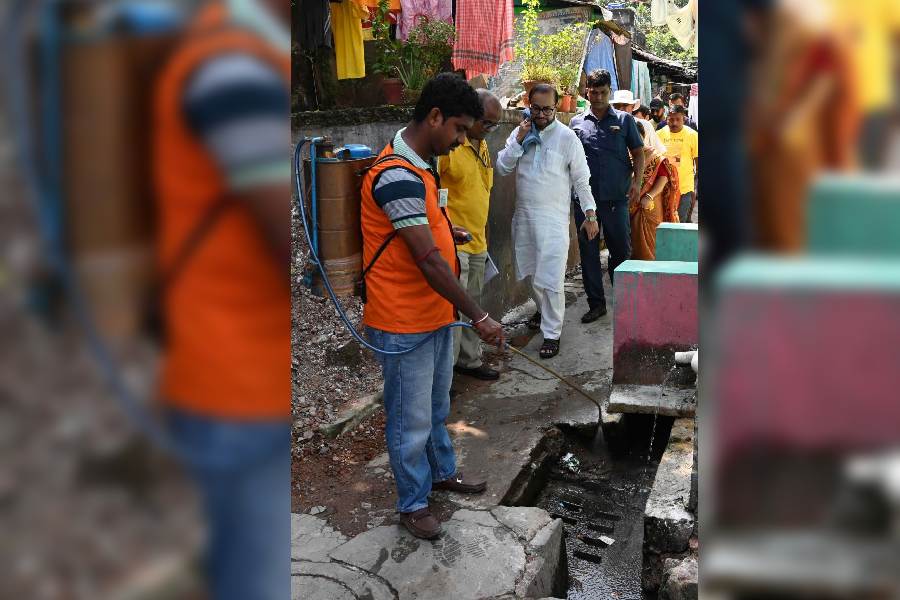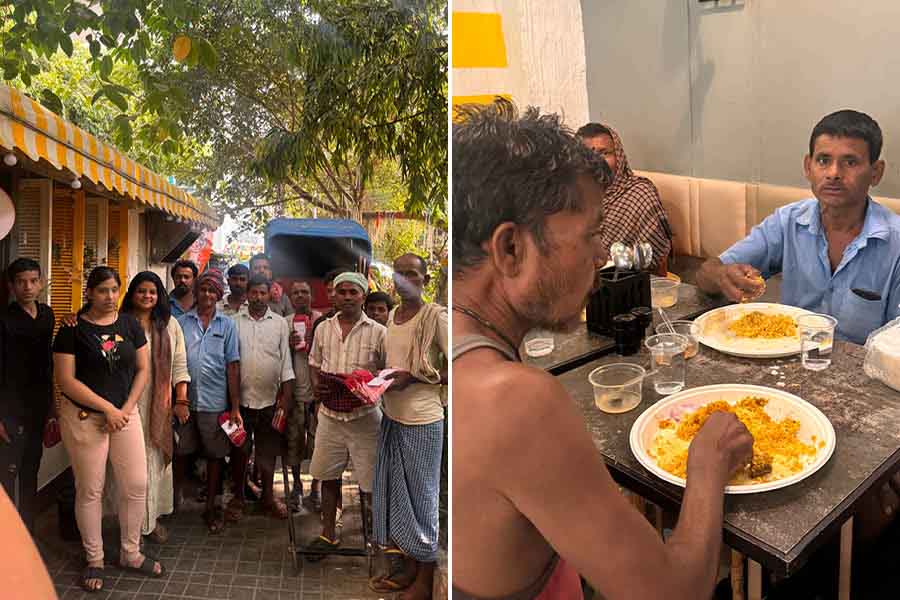Bengal’s premier government-run hospital is a potential breeding ground for mosquitoes.
Metro criss-crossed the SSKM Hospital campus on Tuesday — accompanying a vector-control team of the Calcutta Municipal Corporation (CMC) — and saw plastic glasses, styrofoam plates and glass bottles on the terrace of the staff quarters.
All these containers, if water accumulates in them, can turn into mosquito-breeding sites.

Glasses, bottles and plates- where mosquitoes can breed if water accumulates in them- on the terrace of the staff quarters in the SSKM compound on Tuesday.
Sanat Kr SinhaGroup D employees of the hospital stay in the staff quarters, said a senior SSKM official.
The Aedes aegypti mosquito, which transmits the dengue virus, can breed in a spoonful of water. The egg of an Aedes mosquito can develop into an adult in seven to 10 days if the water remains undisturbed, said an entomologist.
Potential breeding sites were also found in shanties, which have plastic sheets over them, in front of the staff quarters. SSKM employees live in some of the hutments, while others are occupied by people who do not work at the hospital.
During a visit to the Calcutta Medical College and Hospital last month, a vector-control team of the CMC spotted mosquito-breeding sites on the campus.
Deputy mayor Atin Ghosh, who led the vector-control team that went to SSKM, said the shanties were a matter of concern.
“These have plastic sheets over them. Water can accumulate on the plastic sheets and mosquitoes can breed in the accumulated water. The hutments have to be managed better,” he said.
A senior CMC official said residents of the shanties kept their surroundings unclean. Small containers there could turn into mosquito-breeding grounds unless the residents ensure water does not accumulate in them.
“Thousands of patients and their family members visit the Institute of Post Graduate Medical Education and Research (SSKM Hospital). There are many patients admitted in the hospital. Crowded areas are always of concern from the vector-control viewpoint,” said a CMC official.
“If there is an infected mosquito population in such a crowded place, the disease can spread far and wide. Markets, schools and hospitals are high-risk areas,” said the CMC official.
A senior official at SSKM told this newspaper that they would take corrective measures. “We will ensure that the premises remain clean. The containers from the terrace of the staff quarters will be removed,” he said.
“The hospital premises, apart from the staff quarters, are clean. The vector-
control team did not find any mosquito larvae on the premises.”
Mayor Firhad Hakim had said on Friday the number of fresh dengue infections in Calcutta had gone up by over 1,200 over the previous week.
The sharp increase — more than the rise in each of the previous two weeks — is a clear indication that the dengue threat is far from over.






